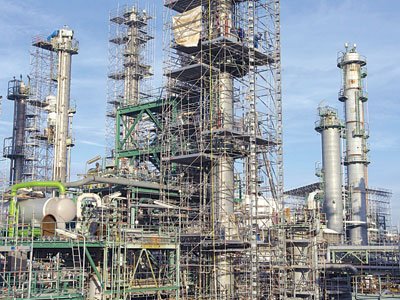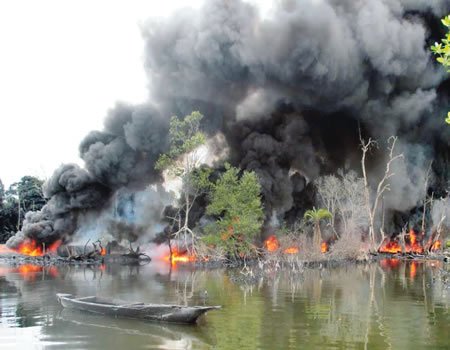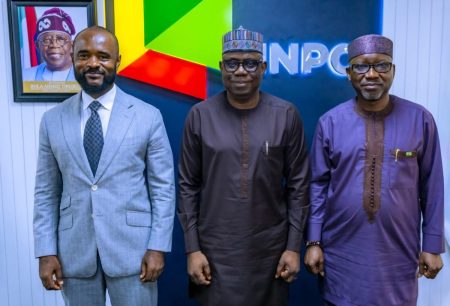
OpeOluwani Akintayo
Lagos — One of Africa’s major crude oil producers, Nigeria is beginning to look into co-sharing refineries likewise operating joint ventures with other African countries.
Dr. Folasade Yemi-Esan, Permanent Secretary, Ministry of Petroleum Resources revealed this as Head of Delegation to the 176th meeting of the Organization of the Petroleum Exporting Countries, OPEC in Vienna recently.
Providing no further details, she said the country is “looking at cooperation within the continent. We are looking at maybe co-sharing refineries and joint ventures between countries”.
There are a total of 42 refineries in Africa, with a total name-plate capacity of 3,217,600 barrels per day (bpd). The major refining countries are Egypt with 9 refineries (774,900 bpd); Algeria with 5 refineries (303,700 bpd); Libya with 5 refineries (380,000 bpd); South Africa with 4 refineries (545,000); and Nigeria with 3 refineries (445,000 bpd). More than half (i.e. 51.7%) of Africa’s refining capacity is in North Africa. According to McKinsey’s database, most of these are State-Owned (59%). 29% are based on joint ownership with government and 12% are joint-venture arrangements between International Oil Companies (IOC’s).
However, these national refineries operate at different levels of efficiency. Considering data of average national capacity utilization from 2006-2009 (Oil & Gas Journal refineries survey), the efficiency levels for these countries are: Egypt (81%), Algeria (94%), Libya (87%), South Africa (85%), and Nigeria (18%).
In the past 20 years, only 3 Greenfield refineries have been constructed in Africa. These were built in Adrar (Algeria) and Khartoum (Sudan) with China National Petroleum Company (CNPC) partnering with the governments, with capacities of 13,000 bpd and 100,000 bpd respectively. The third one was built in Alexandria (Egypt) by Egypt General Petroleum Corporation, Egypt’s national oil company (NOC) with a capacity of 100,000 bpd. Planned new builds were constructed by Petrochina at Ndjamena (Chad) and Zinder (Niger) with same 20,000 bpd capacity. The third is being constructed by Sonangol, Angola’s NOC at Lobito (Angola) with a capacity of 200,000 bpd. From the foregoing, refining in Africa is led by NOC’s, and new investments are dominated by the Chinese National Petroleum Companies.
According to Dr. Yemi-Esan, co-sharing refineries and inter-continent JVs would strengthen Africa’s position as crude oil producers.
Nigeria working hard to abide by OPEC cuts
After earlier seeking exemptions from production adjustments under the ‘Declaration of Cooperation’, Dr. Yemi-Esan explained that Nigeria is now working “very, very hard” to conform with the DoC adjustments. “Nigeria is committed to the ‘Declaration of Cooperation’. We asked for an exemption at the beginning, because we had several issues in the country, such as problems of insecurity and we were not producing up to what the limits would have been at that time. So we asked for exemptions. And we came back willingly in December of last year to join the Cooperation of 24 countries,” she said, adding: “Whatever ceilings, whatever limits we have, we are committed to working within those limits.”
One of the many benefits of the ‘Declaration of Cooperation’ is that it has given Nigeria the opportunity to deepen relationships with other countries — even beyond energy, she said.
“Going beyond just the meetings, we facilitate with one another and talk about these issues to make sure we are all on the same page. We are happy that OPEC works with consensus, so we really have to talk with one another and make new friends and develop relationships with other countries, with other Ministers, so that we can achieve that consensus.”
As a forerunner of oil production in Africa, Nigeria plays an important role in the industry and works with others through the African Petroleum Producers Organization, APPO.



